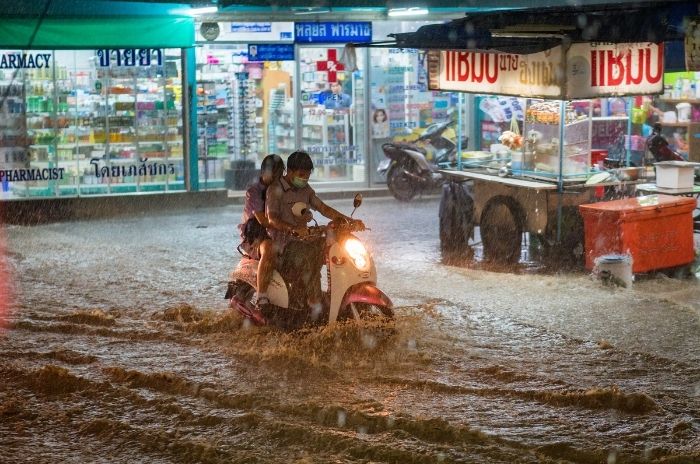Do you know the difference between weather and climate change?

In fact if you’re feeling hot or cold or feeling the rain fall on you, then you’re experiencing the effects of weather, not the climate change. Of course, there is correlation between weather and climate, but on longer period, not a day or a week. We have to be aware of that a hot summer day does not mean that the climate changes.
The weather elements are the followings:
- temperature
- cloudiness
- atmospheric pressure
- precipitation
- wind
- humidity
The climate is up to the weather as it is a long-term pattern in an area, typically averaged over a period of 30 years. The climate changes in case the previous periods of climate change, as the frequency, intensity, duration, and timing of extreme weather changes, like
- more extreme rain and snow
- more intense heat waves
- more frequent and intense droughts and floods
- rising sea level
For sure anywhere you live in the World, you can feel one or more of the above extreme elements. Temperature rises must slow down to 1.5 °C by 2100 if we want to avoid the worst consequences of climate change, scientists say.
What will happen if we do not act agains further warming and reach 2°C or more by the end of the century?
- Desertification: with further warming, some regions could become uninhabitable, as farmland turns into desert.
- Rising sea level: with extreme rainfall causing historic flooding.
- Warmer seas: our oceans and its habitats are also under threat.
- Wildfires: are becoming more frequent as hot, dry weather are more frequent.
- Frozen ground melts: as a result greenhouse gases trapped for centuries will be released into the atmosphere, worsening climate change.
- Scientists believe at least 550 species could be lost this century if action is not taken: in a warmer world, animals will find it harder to find the food and water they need to live. For example, polar bears could die out as the ice they rely on melts away, and elephants will struggle to find the 150-300 litres of water a day they need.
How will the climate change in my region?
As the climate is different in different regions, the global warming has different effects in different parts of the world. Some places will be more warm than others, some will receive more rainfall and others will face more droughts.
People in poorer countries will suffer the most as they do not have the money to adapt to climate change.
Some examples which may happen unless we do not go above 1.5 °C global warming:
- The UK and Europe will be vulnerable to flooding caused by extreme rainfall
- Countries in the Middle East will experience extreme heatwaves and farmland could turn to desert
- Island nations in the Pacific region could disappear under rising seas
- Many African nations are likely to suffer droughts and food shortages
- Drought conditions are likely in the western US, while other areas will see more intense storms
- Australia is likely to suffer extremes of heat and drought
All of us, individuals, governments and businesses all over the World have to take action to save our Planet, no choice, we have to take action, we have to act, it is our responsibility.
